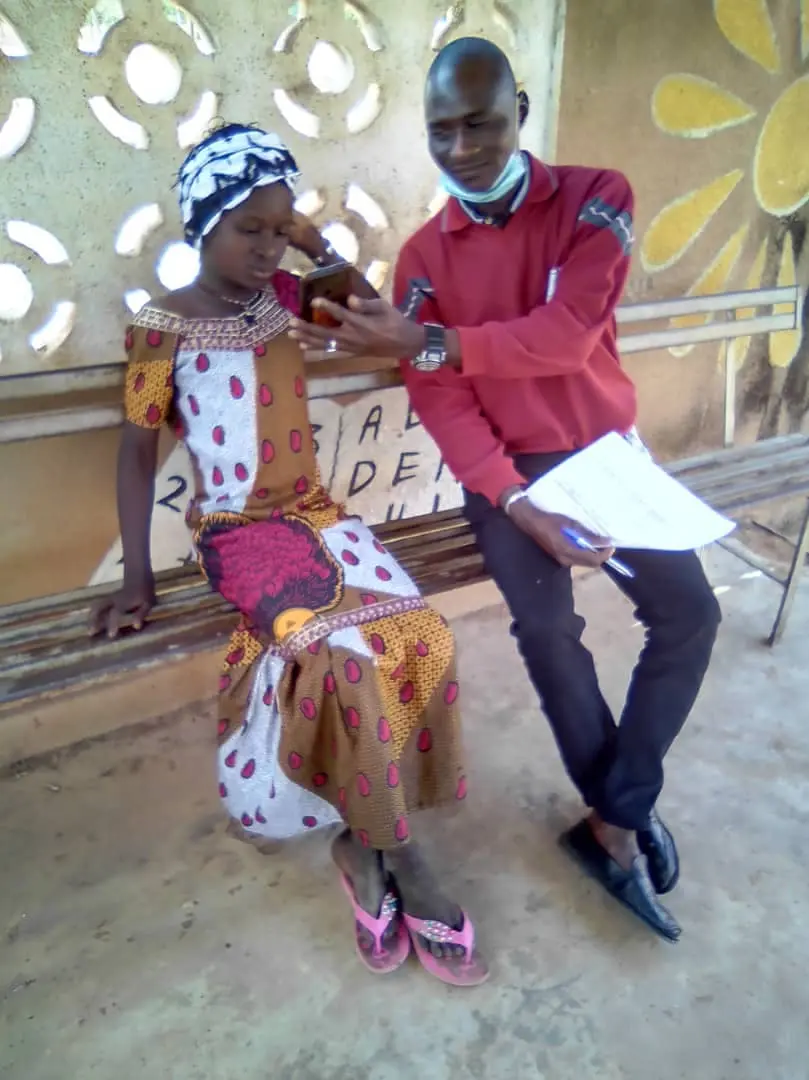Work: No Child's Business
The ‘Work: No Child’s Business’ (WNCB) Alliance aims at ensuring that children and youth are free from child labour and enjoy their rights to quality education and (future) decent work. Social norms and traditions, social exclusion and discrimination as well as a poor functioning education system, are key reasons why children are working and not attending school. The WNCB alliance partners find it important to recognize that community discourse and organizational culture play an essential role in influencing human behaviour and organizational conduct, as well as complex system dynamics such as a value chain. The partners have therefore opted for SenseGuide and SenseMaker methodology for the baseline, mid-line and end-line analysis of the ‘Work: No Child’s Business’ (WNCB) program while ensuring that SenseMaker will complement other methods and data analysis within the program MEAL system.
In my experience, SenseMaker proved to be a great methodology to dive into norms and behaviours around complex societal issues. Given the time SenseMaker requires to unfold its potential, it provided me and my colleagues with a deep and clear understanding of how issues are framed, described and experienced by our key stakeholders: people we try to support with our work. Equally relevant, SenseMaker is a very valid approach to test assumptions we work with in our programmes. Dave and his team were able to successfully manage an assessment for one of our main programmes running in 5 countries, and impressively did this fully remotely, during COVID lockdown.
Luca Genovese, MEAL expert
The Work: No Child's Business programme
The Work: No Child’s Business Alliance is run by the Save the Children Netherlands, UNICEF Netherlands and the Stop Child Labour Coalition. Hivos is the lead organization and hosting the programme management unit. The programme is supported by the Netherlands Ministry of Foreign Affairs.
Work: No Child’s Business aims to achieve that children and youth are free from child labour and enjoy their rights to quality education and (future) decent work. The alliance works in six countries: Cote d’Ivoire, India, Jordan, Mali, Uganda and Vietnam. In these countries they identified five sectors with a high incidence of child labour: garment, textiles and footwear, gold and mining, natural stones, cocoa and the informal sector including domestic and agricultural work. The Alliance joins forces with communities, schools, governments, civil society organizations, trade unions and private actors, bringing sustainable solutions for children and their families.
The Alliance works through four integrated pathways of change to address the root causes of child labor and its pervasive impact on children, youth, their families and communities. These pathways describe the change the partners wish to achieve at four interacting levels: the community, government, private sector and international level. consists of a diverse set of strategies and interventions that vary by country and which build on each other to promote sustainable change.
SenseMaker methodology for Monitoring, Evaluation, Accountability and Learning
The SenseMaker methodology is used for programmes monitoring and evaluation; mapping ideas, mind-sets, and attitudes; and detecting trends and weak signals. By capturing and analysing a large quantity of stories, it provides evidence to understand complex change. SenseMaker is a form of meta-analysis of qualitative data, that bridges a gap between case studies and large-sample survey data. It is expected that SenseMaker will help us recognise patterns and trends in perceptions, behaviours and relationships, and on the basis of this understanding, is an important ‘tool’ for supporting programme management and decision making. Through the SenseMaker assignment we are mostly focusing on the community level which has two interrelated ultimate outcomes:
- Outcome 1a: Children are empowered to pursue an education and (future) employability within a supportive family and community environment
- Outcome 1b: Increased enrolment and retention in quality formal education or if relevant, bridge schooling, and improved access to youth employment
Gender equality lens
A gender equality lens is incorporated throughout the SenseMaker deployment”. This means that:
- the WNCB alliance aims for a gender sensitive/transformative intervention and that gender equality and gender mainstreaming is considered not only in the data collection exercise, but in the overall approach including communication, discussions and strategies.
- Relevant questions pertaining to Gender Equality are incorporated as part of the SenseMaker data collection exercises
- Sensemaker data/findings contribute to the overall gender analysis along with the base line exercise
SenseMaker deployment
SenseMaker will be deployed in 6 countries: India, Uganda, Jordan, Ivory Coast, Mali and Vietnam. SenseGuide is in charge for a Training of Trainers (ToT) in preparation of each data collection phase. The qualitative analysis using SenseMaker methodology will be conducted by SenseGuide together with the country teams.
Results of the baseline assessment
The (SenseMaker) methods was used in two surveys: one survey focused on children in the age of 7-17 years and one survey focused on parents/guardians and community influencers such as teachers and (religious) leaders. Each survey contained the same questions to prompt narratives and to provide context to the narratives. This enabled the comparison of perspectives between children and adults.
From December 2020 till February 2021, trained story collectors collected self-interpreted narratives from 612 children and 309 adults across the 5 countries. The collected narratives in this study give a holistic perspective of children’s daily lives and the extent to which fundamental rights such as the rights to education, to play and to social protection against child labour are fulfilled.
Common patterns and signals
Although the social, economic and political context of each focus country differs, the study finds common patterns and signals in overarching themes related to education, gender, and child-parent relationship. The study shows that underlying causes of child labour are complexly interdependent, multi-faceted and cross-cultural. The themes presented in the report are concepts for conversation starters and for further reflection and consideration on how the WNCB programme interventions are addressing them.
